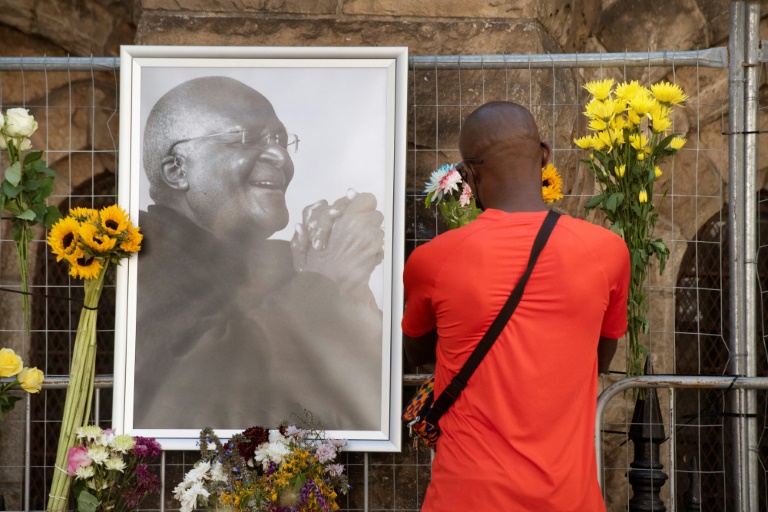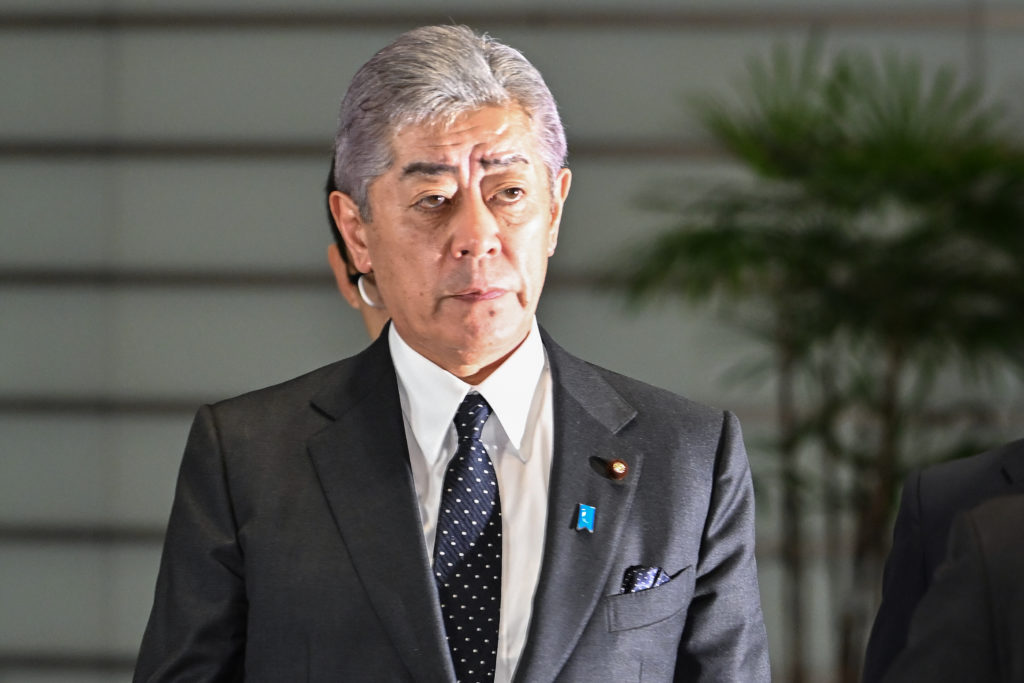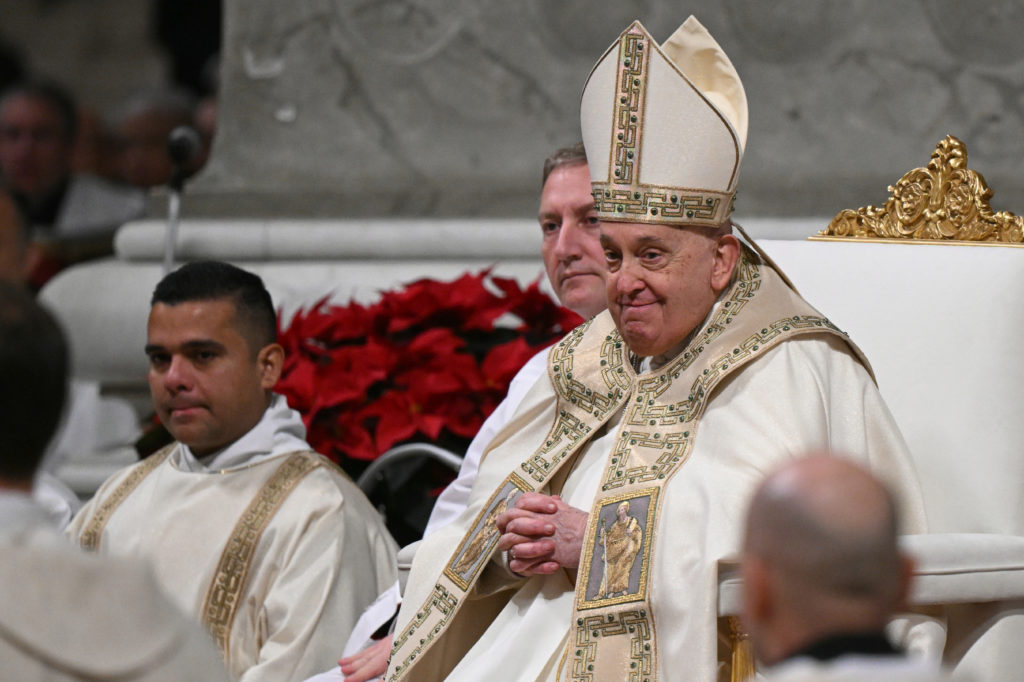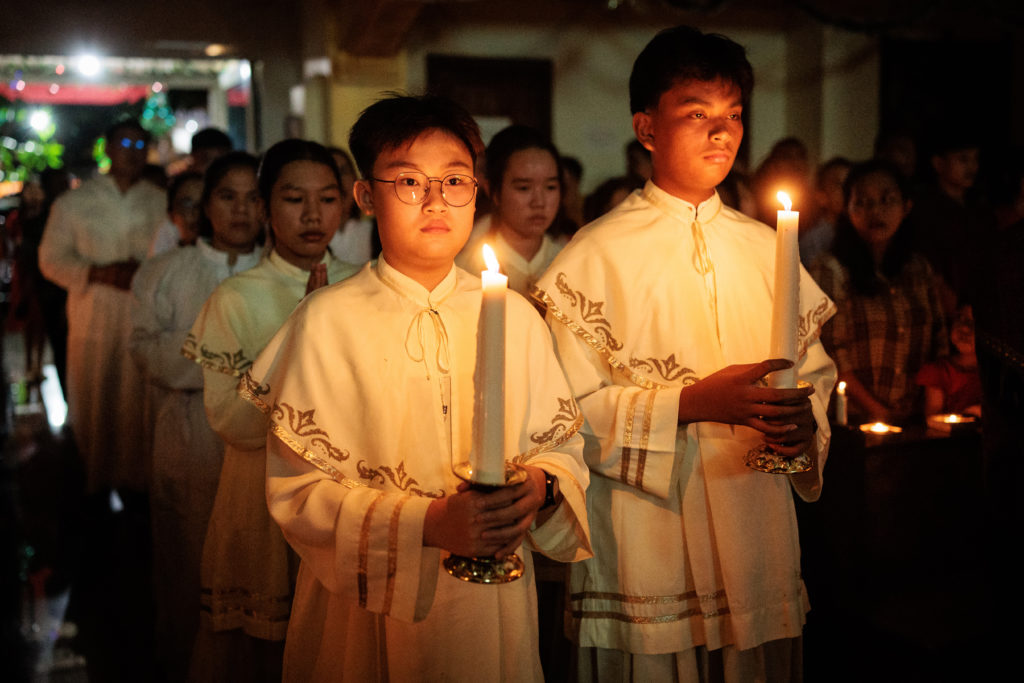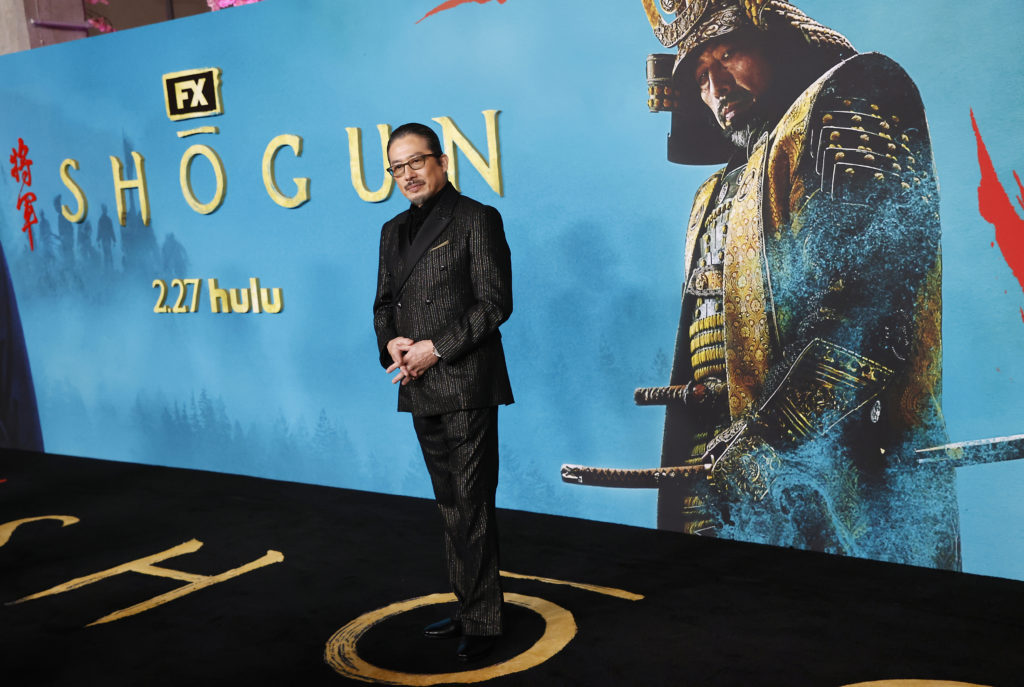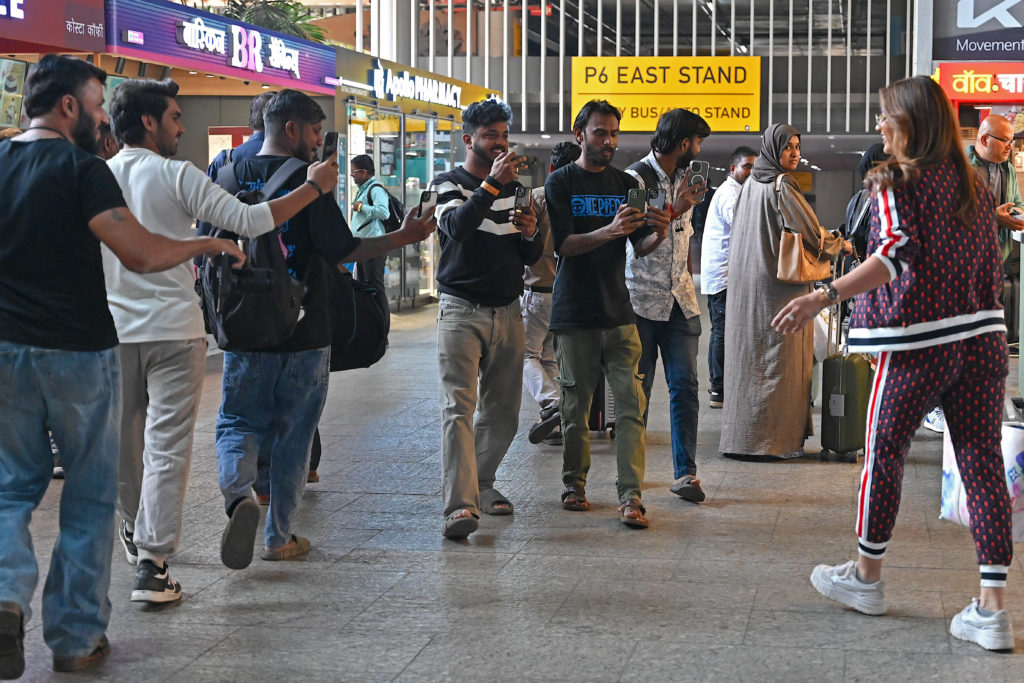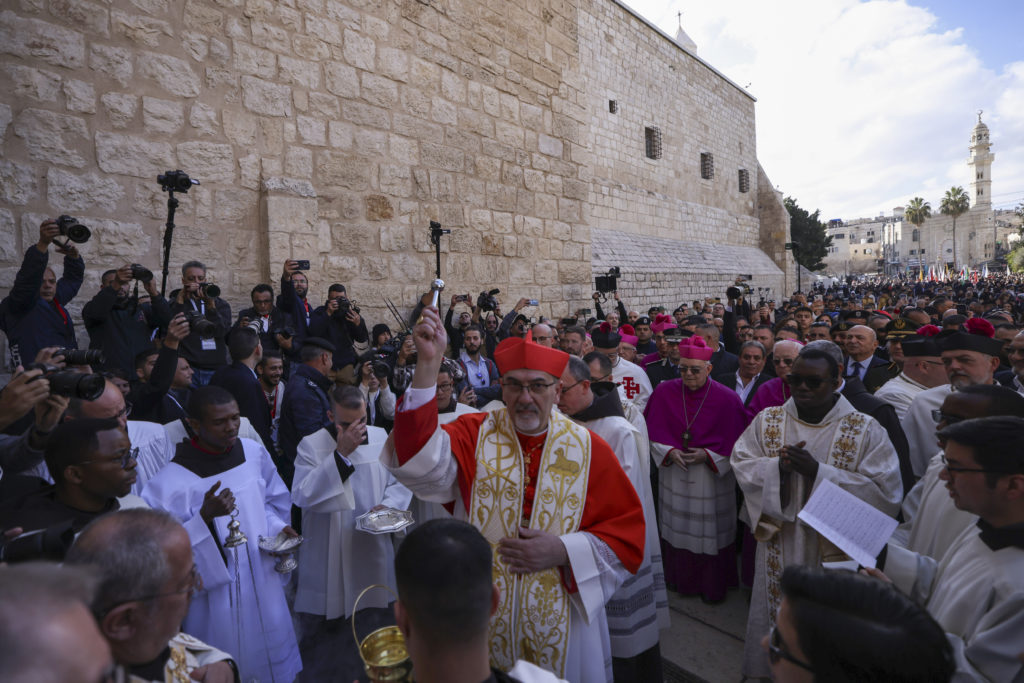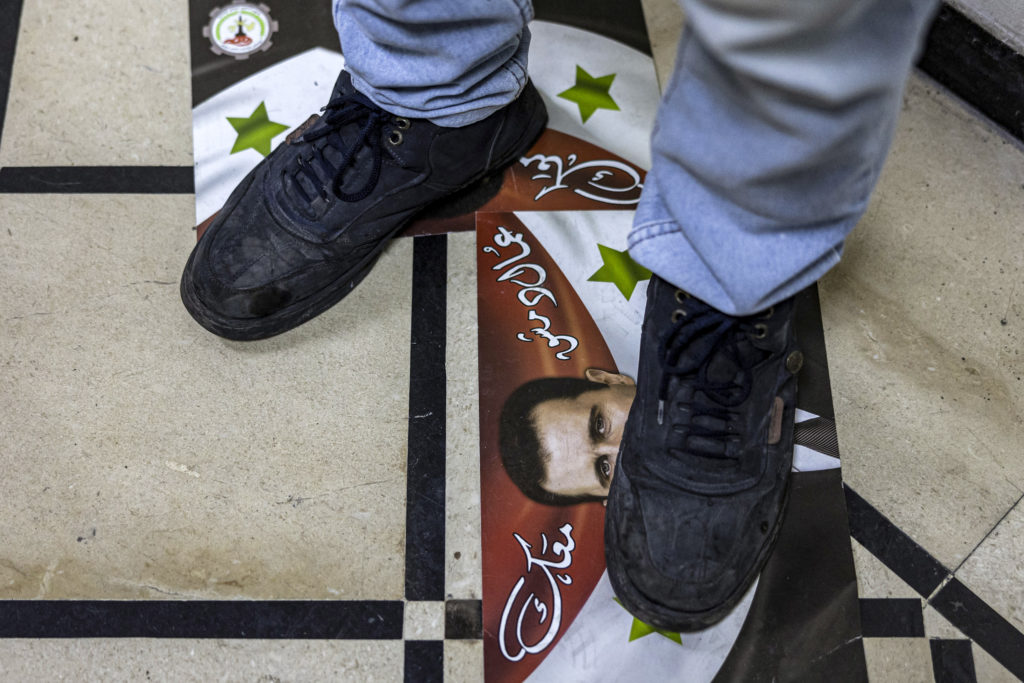South Africa on Monday began a week of mourning for the revered anti-apartheid fighter Archbishop Desmond Tutu.
The Nobel Peace laureate passed away on Sunday at the age of 90, stripping the world of a towering moral figure and bringing the curtain down on a heroic South African era.
His funeral will be held on New Year’s Day at Cape Town’s St. George’s Cathedral, his former parish, his foundation said, although ceremonies are likely to be muted because of Covid restrictions.
The widow of South Africa’s first black president Nelson Mandela, Graca Machel, on Monday mourned “the loss of a brother.”
Tutu “is the last of an extraordinarily outstanding generation of leaders that Africa birthed and gifted to the world”, she said in a statement.
“He masterfully used his position as a cleric to mobilise South Africans, Africans, and the global community against the brutalities and immorality of the apartheid government,” she said.
“He stood resolute and fearless, leading demonstrations cloaked in his flowing clerical robe with his cross as his shield — the embodiment of humankind’s moral conscience.”
The bells of St. George’s will ring for 10 minutes from noon each day until Friday. The church has asked those who hear the sound to pause in their daily work and think of Tutu.
A memorial service will be held in the capital Pretoria on Wednesday. Family and friends will gather on Thursday evening around Tutu’s widow, “Mama Leah.”
On Friday, his remains will be placed in the cathedral on the eve of the funeral, although attendance for his farewell will be capped at 100, according to the archbishop of Cape Town, Thabo Makgoba.
“Only a fraction of those who want to be there can be accommodated in the Cathedral. So please don’t get on a bus to Cape Town,” he said in a statement following a press conference.
Due to Covid, singing and music at the ceremony will also have to be moderated, officials said.
– Fighter –
Diminutive, crackling with humour and warmth, Tutu will be most remembered for fearlessly speaking against white minority rule, although he campaigned against injustice of any kind.
Ordained at the age of 30 and appointed archbishop in 1986, he used his position to advocate tirelessly for international sanctions against apartheid.
He coined the term “Rainbow Nation” to describe South Africa when Mandela became the country’s first black president in 1994.
He retired in 1996 to lead a harrowing journey into South Africa’s past as head of the Truth and Reconciliation Commission, which exposed the horrors of apartheid in terrible detail.
He was awarded the Nobel Peace Prize in 1984 for his central role in the fight against apartheid, but his combat against injustice long continued after racial segregation was consigned to the history books.
He excoriated the African National Congress (ANC) for fostering cronyism, corruption and incompetence after it was voted into office.
– ‘Shepherd’ –
Among the millions who mourned his passing, President Cyril Ramaphosa called Tutu a man of “extraordinary intellect, integrity and invincibility against the forces of apartheid”.
The Nelson Mandela Foundation called Tutu “an extraordinary human being. A thinker. A leader. A shepherd.”
“He was larger than life, and for so many in South Africa and around the world his life has been a blessing,” it said in a statement.
Queen Elizabeth II, Pope Francis, French President Emmanuel Macron were among those who paid tribute to him.
Barack Obama — the United States’ first black president — hailed Tutu as a “moral compass” who was “concerned with injustice everywhere”.
Tutu was “a towering global figure for peace and an inspiration to generations across the world,” said UN chief Antonio Guterres.
Tutu was born in the small town of Klerksdorp, west of Johannesburg, on October 7, 1931, to a domestic worker and a school teacher.
He trained as a teacher before anger at the inferior education system set up for black children prompted him to become a priest. He lived for a while in Britain.
Tutu relentlessly challenged the status quo on issues like race, homosexuality and religious doctrine and gave his pioneering support for the assisted dying movement.
“I do not wish to be kept alive at all costs,” he said in The Washington Post in 2016.
“I hope I am treated with compassion and allowed to pass on to the next phase of life’s journey in the manner of my choice.”
The archbishop had been diagnosed with prostate cancer in 1997 and repeatedly underwent treatment.
He had been in a weakened state for several months and died peacefully at 7:00 am (0500 GMT) on Sunday, according to several of his relatives interviewed by AFP.
In his final years, his public appearances became rarer. This year, he emerged from hospital in a wheelchair to get a Covid vaccine, waving but not offering comment.
burs-ger/ah/ri/jm

